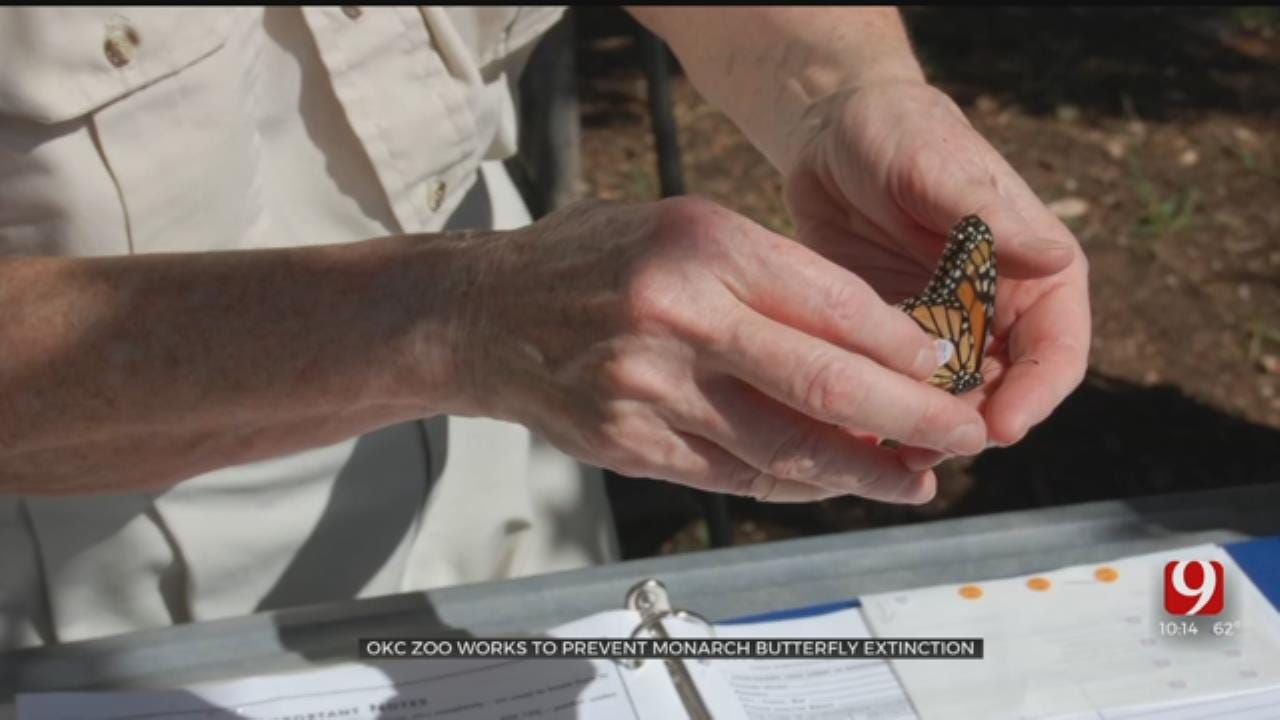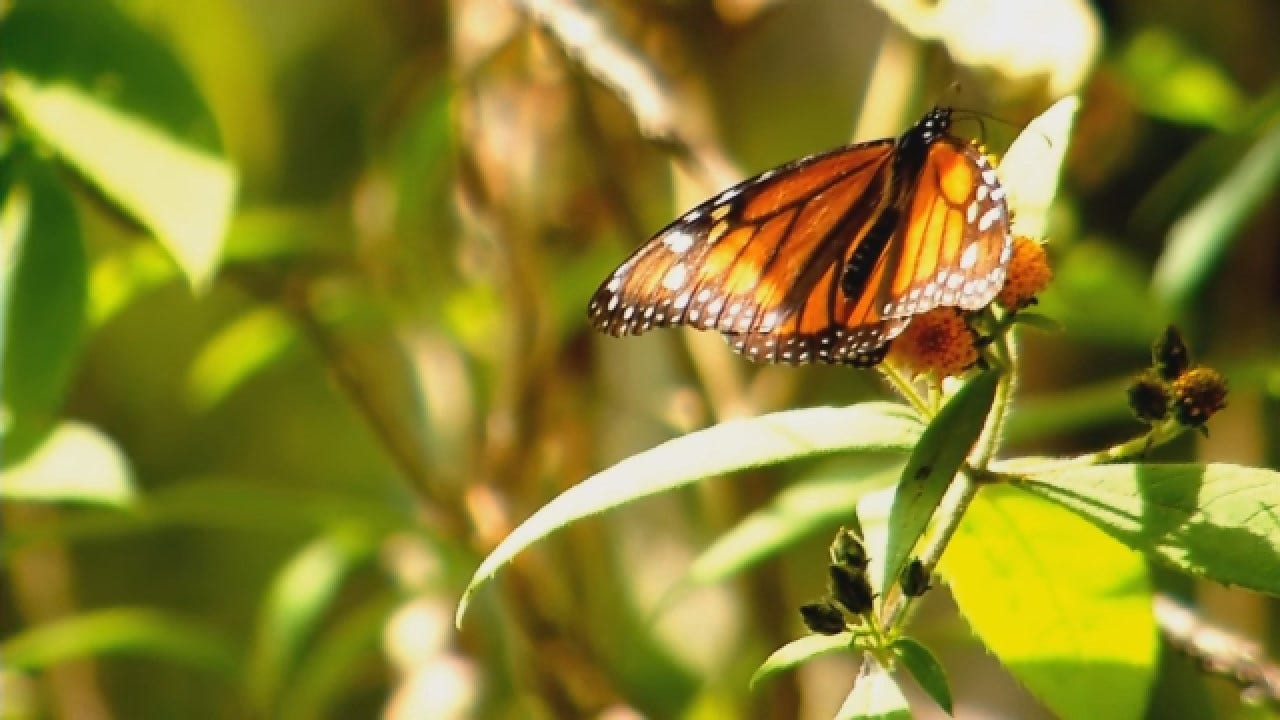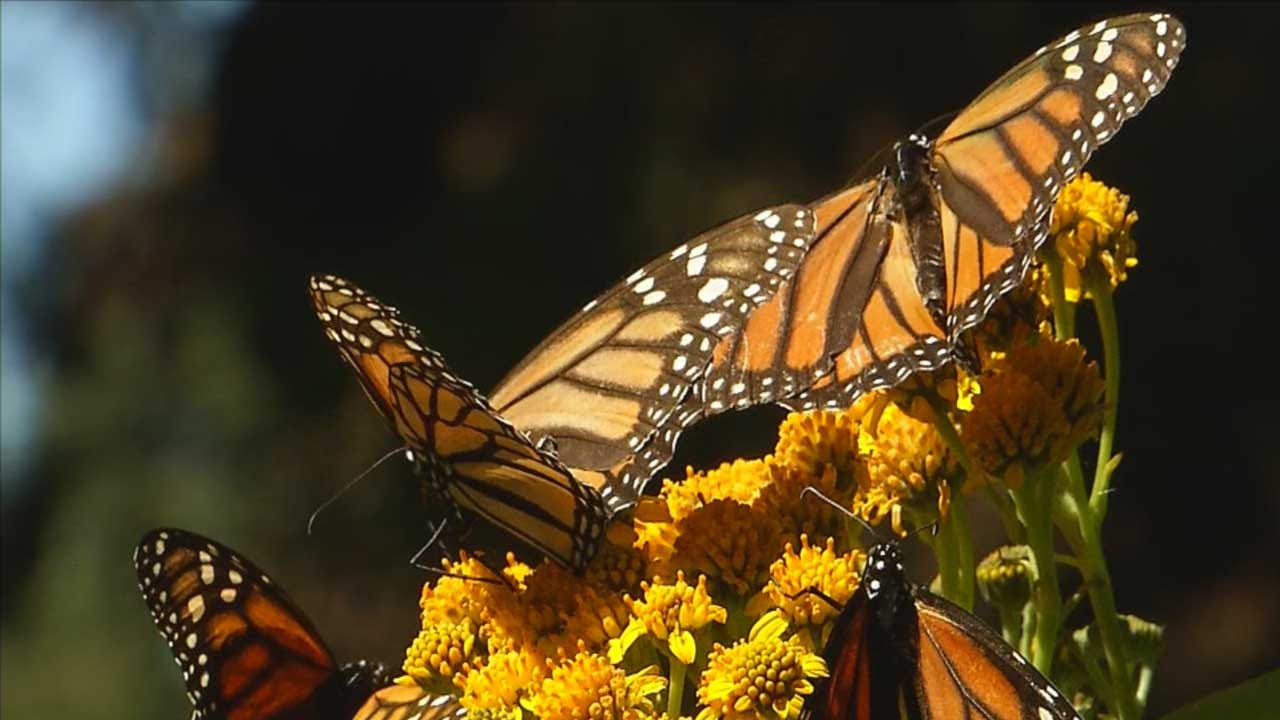Oklahoma City Zoo Working To Prevent Monarch Butterfly Extinction
Interstate 35 through Oklahoma City is considered the monarch migration highway where millions of butterflies make their winter journey to Mexico.Wednesday, March 27th 2019, 10:11 pm
Interstate 35 through Oklahoma City is considered the monarch migration highway where millions of butterflies make their winter journey to Mexico. However, the monarch population was nearly wiped out just a few years ago. News 9 went with the Oklahoma City Zoo and Botanical Garden to the massive butterfly sanctuaries in Mexico on a mission of conservation.
The entire population of monarchs are wintering in an area that takes up less than 15 acres just west of Mexico City, spread out over a dozen protected sanctuaries.
"It's better than magic and crazier than science fiction to see it," exclaimed Dwight Lawson, the executive director and CEO of the Oklahoma City Zoo.
This natural phenomenon has been happening for thousands of years.
"We could actually hear the butterflies, the fact that you could actually hear their wings was incredible to me," said Rebecca Snyder, the zoo curator of conservation and science.
The Mecca of the monarch migration is El Rosario Sanctuary. El Rosario is the largest, most visited sanctuary with as many as 1 billion butterflies. The butterflies have traveled as much as 3,000 miles from Canada and all over the U.S., through Oklahoma and down to Mexico to winter for six months of the year.
"'How do they do this,'" asked Lawson. "It's such an incredible migration, such an incredible story, you think the perils and pitfalls they go through, and the fact that none of them have ever been here," he added. "How do they find it and how do they know where to go and come to the same spots," he said.
The Oklahoma City Zoo traveled to central Mexico at a critical time because the monarch population has declined 90% in the last 20 years. The loss of habitat like milkweed in United States and wintering trees in Mexico, widespread pesticide use, and climate change are to blame.
However, new numbers just released in February actually show the first population increase in 12 years.
"For something that I think many of us grew up taking for granted because you saw it in your backyard every summer, it's pretty scary to think about 'we were that close to losing monarch butterflies,'" Lawson explained. "To think that our kids won't know what a monarch butterfly is just ridiculous and unacceptable," he added.
Each year, the Oklahoma City Zoo tags 200 butterflies to track their journey to Mexico.
"The health of the butterflies is also tightly tied into our heath," Snyder explained. "They are an indicator of whether our environment is healthy and whether it's good for us," she added.
An Oklahoma City butterfly was found in one of the Mexican sanctuaries in 2017.
"Some of them came through Oklahoma to be here and some of them might actually make it to Oklahoma to lay their eggs this spring," Snyder explained.
The monarchs winter at an altitude of nearly 10,000 feet. Clusters of what look like dead leaves are actually thousands of monarch butterflies huddled together to keep warm. Each one weighs one gram, but their collective weight can break the tree limbs. When the temperature rises just enough, they take flight.
"It is the presence of God on Earth," said tour guide Alfredo de la Cruz.
This is a national treasure for the Mexican people.
The monarchs often return to Mexico in the fall during the Día De Los Muertos or the Day of the Dead.
"Every one of the monarchs means one of the souls coming back and it's the moment to share this very special day with living people and the dead souls," de la Cruz explained.
Logging in the preserves is now illegal to save the monarch's habitat. A female monarch with her characteristic thick black veins coursing through blaze orange landed on fellow traveler's knee and stayed there for thirty minutes.
"I didn't see it happen," said Catherine Pudenz. "I just looked down and there she was and I'm like, 'well, hello,'" she added.
The butterflies will soon make the long trip back north. They fly up to 50 miles a day.
"It's incredible that something so, that seems so fragile and so tiny, is so strong though and so resilient it can make it all this way and spend the winter here and then fly back," Snyder explained.
The monarchs only live for a few weeks to a few months, reproducing and laying eggs to carry on the cycle of life. The Oklahoma group is taking back a renewed passion to make sure this beautiful creature does not die off.
"Be proud of the fact that Oklahoma plays such a huge part in making a successful migration for the monarchs," Snyder said.
Snyder said the easiest thing you can do to help is plant flowers and milkweed in your yard, and the butterflies will find it.
"It's important citizen science that just about anybody can do or come out to the zoo in the fall when we have our butterfly festivals and help us tag and take home some milkweed to plant," Lawson said.
Click here for helpful tips from the group "Okies For Monarchs."
More Like This
March 27th, 2019
July 26th, 2018
June 21st, 2018
April 5th, 2018
Top Headlines
March 21st, 2025
March 21st, 2025
March 20th, 2025
March 20th, 2025














